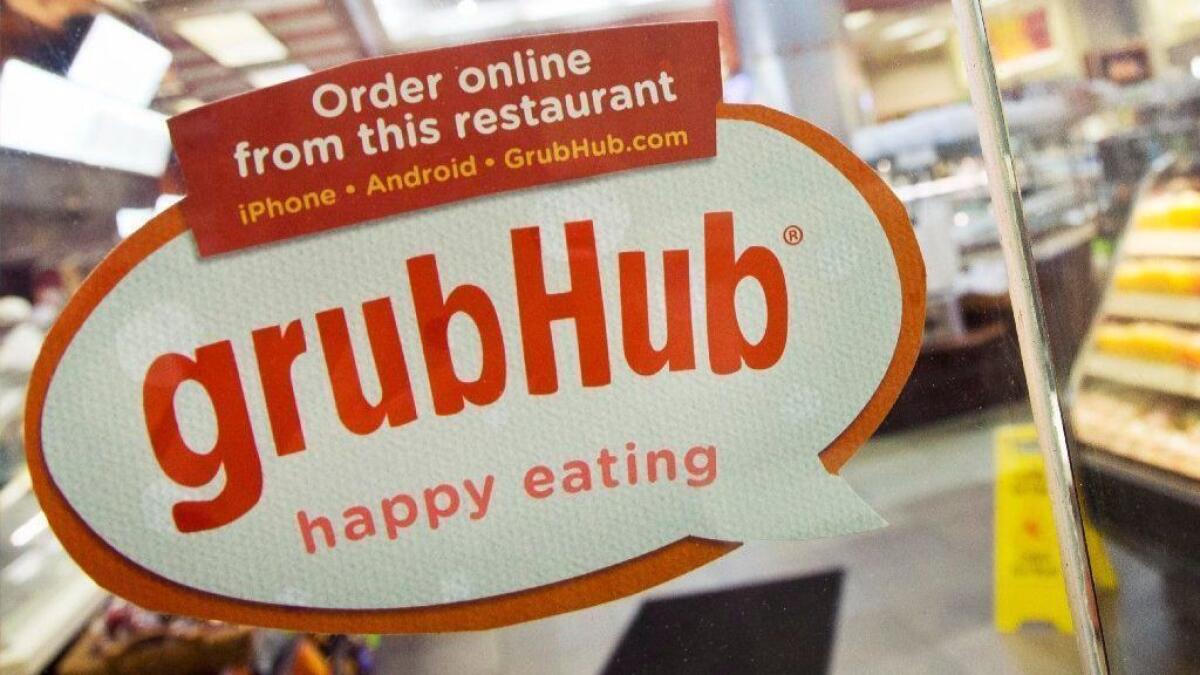Just Eat Takeaway to buy Grubhub for $7.3 billion to enter U.S. market

Europe’s Just Eat Takeaway.com agreed to acquire U.S.-based Grubhub Inc. for $7.3 billion, in a deal that creates one of the world’s largest meal-delivery companies as the COVID-19 pandemic drives a surge in orders.
Amsterdam-based Just Eat Takeaway said it will pay $75.15 per share for Grubhub in an all-stock deal. Grubhub’s share price rose about 6% in extended trading to more than $62, while the European company fell about 13%.
The deal sidelines Uber Technologies Inc., which had been in acquisition talks with Grubhub for months. Political pressure raised questions about whether U.S. regulators would approve such a deal. The two companies had nearly aligned on a price but remained at odds over other issues, including terms of a breakup fee for Grubhub if the deal couldn’t be completed, people familiar with the matter said last month.
Grubhub will launch Just Eat Takeaway into the U.S. market, broadening its already global reach that includes Australia, Brazil and Canada, in addition to its home base in Europe. Jitse Groen, the Dutch billionaire who created Takeaway in 2000 in his university dorm room, has been looking to expand aggressively over the last year. Less than two months ago, Takeaway received antitrust clearance from the U.K. for its $8-billion acquisition of Just Eat.
Matt Maloney, Grubhub’s chief executive, helped start the company in 2004 and led a merger with a competitor, Seamless, in 2013 to create what was then a dominant food delivery website. But Grubhub has fallen far since then. DoorDash Inc., the current leader in the U.S., and Uber have eaten up market share, leaving Grubhub with 23% as of the end of April, according to market research firm Second Measure.
Even as the pandemic has led to a surge in demand for food delivery as people spend more time at home, the industry has been defined by fierce competition. Profit margins are tight or nonexistent because of the stiff competition to sign the most popular restaurants and add customers. Gross food sales for Grubhub rose 8% to $1.6 billion in the first quarter, and the company reported a net loss of about $33 million. Uber’s gross bookings for food delivery increased 52% to $4.68 billion in the same period, but the division’s loss also rose.
Analysts have long said the unprofitable model in food delivery is unsustainable, and they have expected consolidation.
For Uber, losing the deal is a blow to the company’s plan to increase revenue and eventually turn a profit from food delivery. That strategy was especially urgent with the pandemic lifting food delivery while decimating Uber’s main business of ride hailing. The company has cut jobs and side businesses as a result. It was relying on deals to achieve a top position in the markets where it operates.
More to Read
Inside the business of entertainment
The Wide Shot brings you news, analysis and insights on everything from streaming wars to production — and what it all means for the future.
You may occasionally receive promotional content from the Los Angeles Times.










